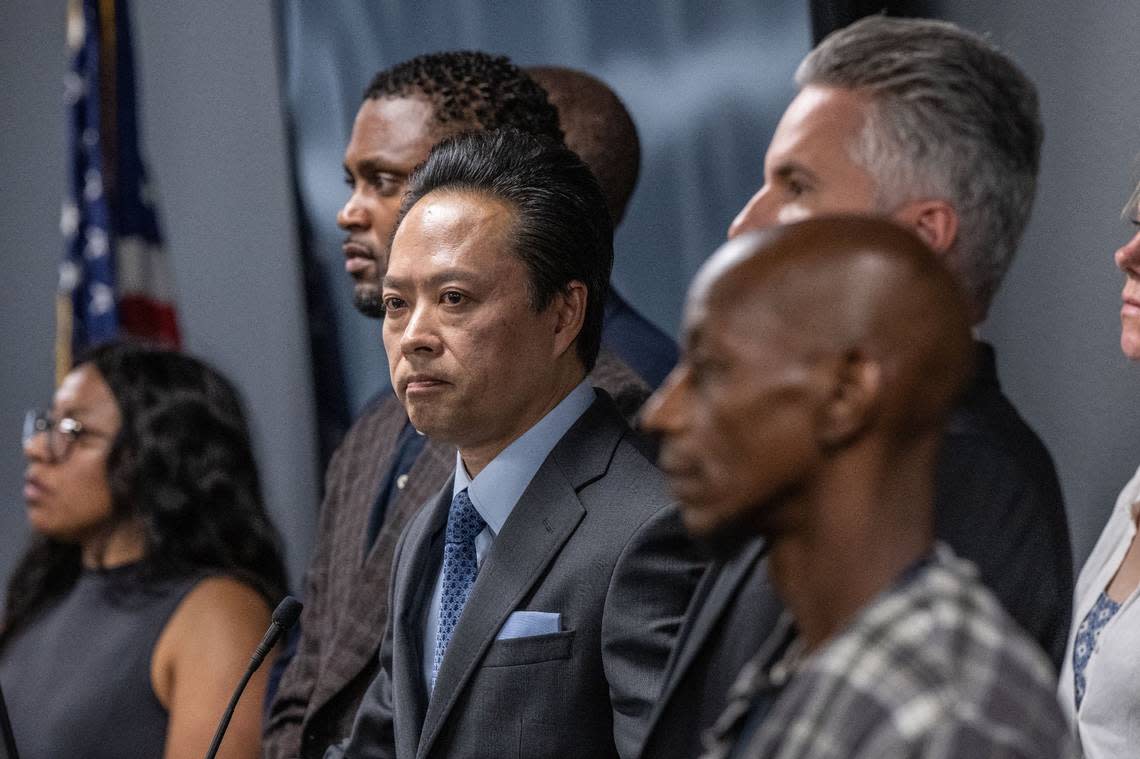Thien Ho’s second homeless lawsuit is like a bad movie sequel. It’s time to move on | Opinion

There’s nothing like a bad sequel that finally signals to the cast that it is time to pack it up and move on. District Attorney Thien Ho has filed a new homeless lawsuit against the city of Sacramento, given how the Sacramento County Superior Court essentially killed the first one.
Thien Ho, Homeless Episode Two, is as misguided as the first one.
Our stubborn district attorney is back with the same old fiction that Mayor Darrell Steinberg, who does not have direct authority over Sacramento Police, has been magically preventing police from moving large encampments blocking sidewalks, letting the homeless run amok. And now Ho claims systemic violation of state and federal disability acts, the homeless blocking access to public property.
Even assuming the remote chance that a judge would let this case go to trial many months from now, the Darrell Steinberg horror show as depicted in this lawsuit will be over. Now finishing out his second term, Steinberg will no longer be mayor. Ho is about to lose his bad guy to kick around.
Opinion
So why is Thien Ho bound and determined to make such a spectacle of himself and his important office by displaying such poor judgment and misplaced priorities?
In his amended case filed Wednesday, Ho did a cut-and-paste job with the original case but applied two disability statutes as new enforcement mechanism. In both cases, Ho claims that the city has caused the nuisance that is homelessness. In the first case, Ho asked the courts to enforce the state’s nuisance statutes to tell the city what to do. But Sacramento County Superior Court Judge Jill Talley would have none of it. The separation of powers between the courts and city government, she said, precluded her from imposing any cure.
Give Ho credit for being resourceful enough to morph into a faux champion of the disabled. Both state and federal disability statutes empower courts to mandate access in public places. In his previous lawsuit, Ho relied on a survey of residents with 3,000 or so complaints about homelessness. Ho is now centering the new legal arguments on disabled Sacramentans.
Ho’s new case cites a single anonymous quadriplegic person alleging some mobility problems cited in his case. That’s not exactly a class action lawsuit that can demand sweeping action. Disability protection laws are designed to cure a discreet access problem, such as a building without an elevator. Ho yet again is trying to get a judge to tell the city how to manage an ever-changing homeless crisis.
Steinberg, mentioned 22 times in the complaint, is alleged to have usurped the authority of City Manager Howard Chan by directing police to avoid enforcing the city’s two-year-old sidewalk ordinance prohibiting encampments from impeding public access. It is as if the numerous and recent removal of large encampments throughout downtown and midtown in particular never happened. Besides, writing tickets doesn’t end homelessness. Ho offers no fundamental solution.
Sacramento and jurisdictions in western states may have something far more important than Ho’s frivolous lawsuit to confront soon. The U.S. Supreme Court appears poised to invalidate an appellate court ruling and give local governments greater authority to remove homeless residents from public property when the same government offers no shelter opportunity as an alternative. This could open the floodgates to test just how far we can criminalize homelessness.
Sacramento County has just under 4,000 homeless living on the streets, the overwhelming majority in the city, according to a recent tallying effort announced on Wednesday. The so-called Point in Time Count found 41 percent fewer unsheltered homeless residents than in 2022. Steinberg is the county’s undisputed political leader in searching for homeless solutions and fighting for state funds, particularly new mental health funding soon to be available to the county. He’s simply not the villain depicted in Thien Ho’s fictional lawsuit.
There’s so much hard work that remains to be done, from maintaining shelter space to accelerating the construction of housing that everyday Californians can afford. No progress in addressing the homeless crisis will be the result of Thien Ho.
The city was the clear winner in response to Ho’s first lawsuit. The city has yet to respond to Ho’s new litigation. In a just world, Ho’s horrible sequel demands that he be sentenced to watch the 1987 box office flop “Police Academy Four: Citizens on Patrol,” arguably the worst movie ever made with its zero score on the fan site Rotten Tomatoes. That’s the same rating Ho gets until he agrees to focus on his real job.

